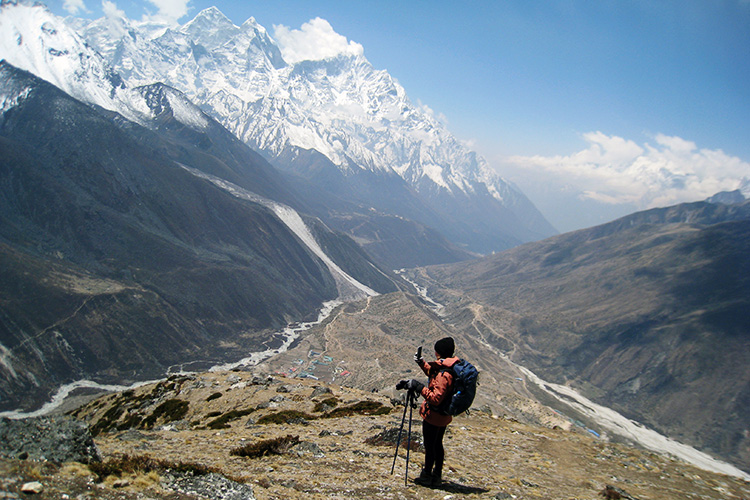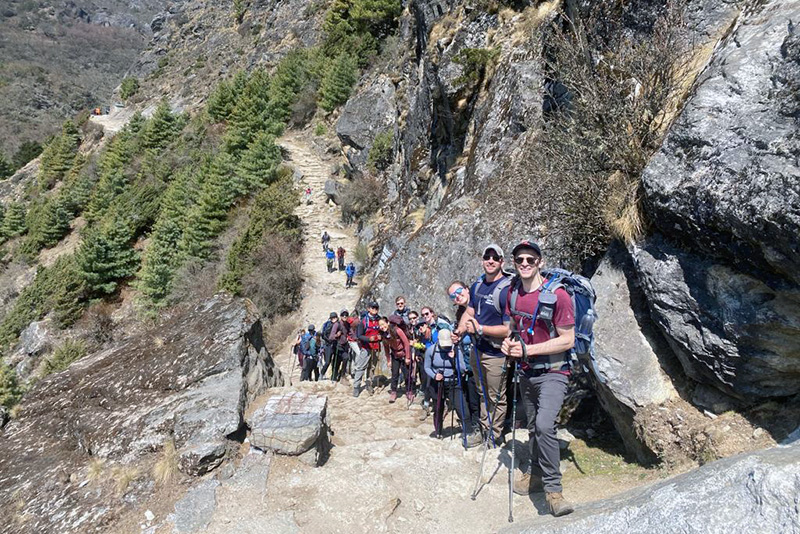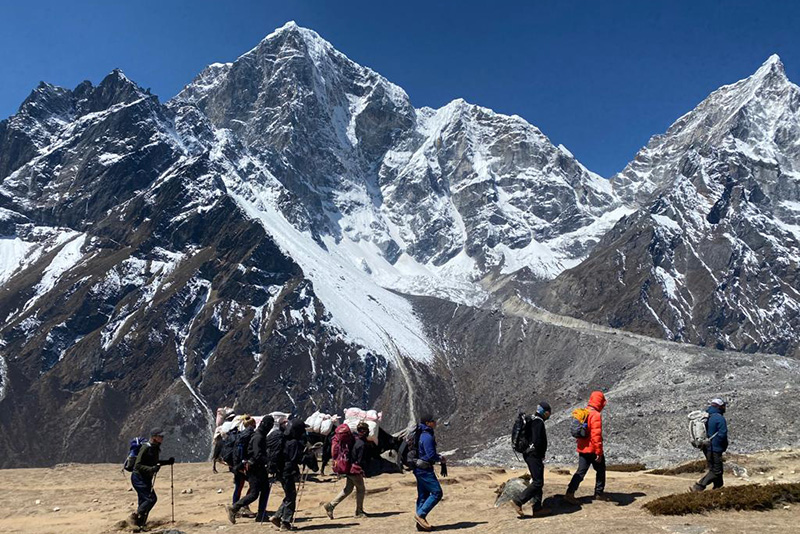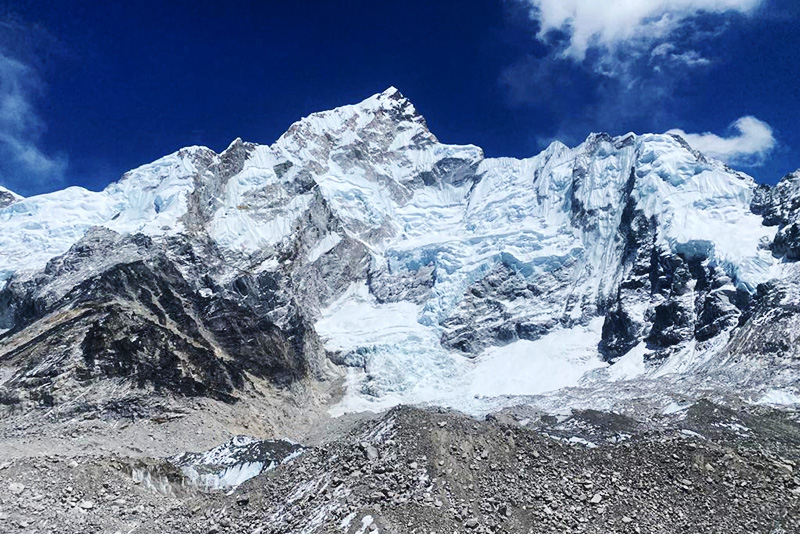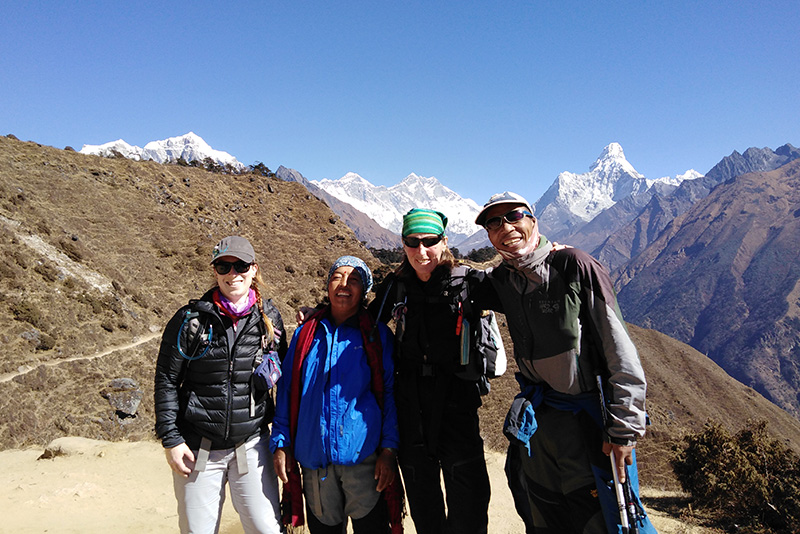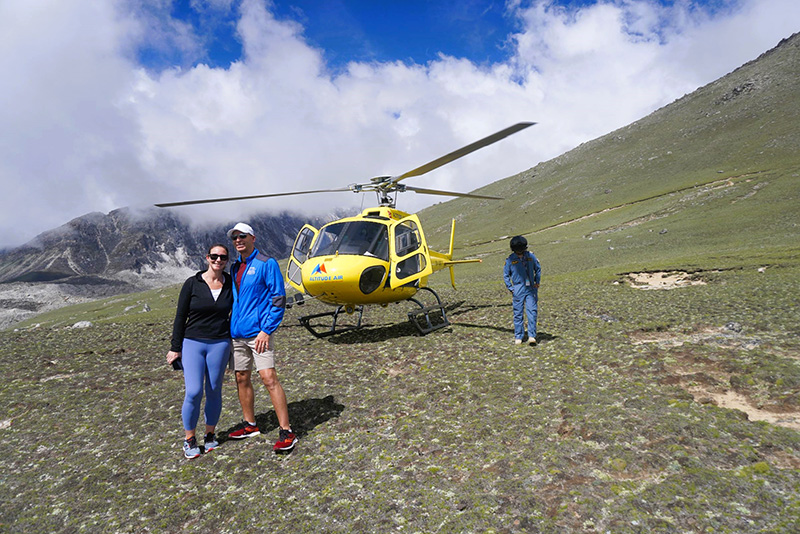Everest Base Camp Trekking Tips
Experience the ultimate adventure of trekking to Everest Base Camp. Experience the breathtaking journey through the majestic Himalayas and stand at the base of Everest in person. Experience the surreal feeling of standing at the base of one of the 7 Natural World Wonders - a majestic peak that reaches an astounding 5,354m. With the towering presence of Mt. Everest above you, this is a moment that will leave you in awe.
Embarking on a journey to Everest Base Camp is a thrilling experience that can be enjoyed by almost anyone. However, to ensure a seamless and delightful trip, there are a few things to keep in mind. Discover the ultimate guide to conquering Everest Base Camp with our expert tips, tricks, and travel hacks.
“Mountains are the beginning and the end of all natural scenery.”
By John Ruskin
It is advisable to train in advance.
Although individuals of various ages and physical abilities can embark on the journey to Everest Base Camp, it is advisable to be in good physical shape to ensure a comfortable experience. You don’t have to be a triathlete to hike Everest Base Camp, but you do want to make sure you have the endurance to get there. Presented below is a training guide for Everest Base Camp that will assist you in getting fit for your trip.
Consider adding extra days at the end of your itinerary.
It is advisable to schedule any additional days you may have in Nepal towards the end of your trek rather than at the beginning. Flights departing from Lukla and returning to Kathmandu may experience delays due to adverse weather conditions. It is advisable to avoid scheduling an international flight the day after being stranded in Lukla due to inclement weather.
Break in your shoes beforehand.
It is not advisable to break in new shoes while trekking to Everest Base Camp. Experiencing blisters, chafed skin, and aching feet can diminish the quality of your experience. Before your hiking trip, it is important to take the time to wear your new hiking boots or shoes and go on a hike with them. This will assist you in breaking them in and ensuring that there are no fitting problems that may cause discomfort, rubbing, or strain on your feet. Wear them around the house and town for a week or two, then take them on a couple of hikes—the best breaking-in happens off pavement.
Ensure that your luggage does not exceed the weight limit.
The flight from Kathmandu to Lukla, which marks the start of the Everest Base Camp Trek, has stringent weight restrictions. Please note that the weight limit for your main pack is 10kg (22 lbs) and for your carry-on, it is 5kg (11 lbs). While it is possible to pay for additional luggage, it is not recommended. You or your porters will have to carry any additional luggage that you bring on your flight to Kathmandu during the trek up the mountain.
Prepare for potential flight delays.
The Lukla flight is contingent upon favorable visibility conditions in both Kathmandu and Lukla. Flights may often get delayed due to the rapidly changing weather conditions on the mountain. Nepal is a developing country, and the communication system at the airport is frequently disorganized. It is possible that you may be fortunate enough to catch a flight from the airport right away, but it is more likely that you will have to wait for a few hours before your flight departs. Our recommendation is to prepare for any potential delay by bringing along a book, some snacks, and a bit of extra patience.
Although minor delays are anticipated, we understand that extended delays can cause anxiety. Using an Everest Base Camp Trekking company can provide extra assistance on this occasion. If we are unable to book you on an earlier flight, we can assist you in finding suitable accommodations while you wait. We will also continue our efforts to ensure that you get the best possible flight.
Bring a deck of playing cards and a book.
Once you have completed a long day of trekking, your desire will be to settle down and unwind at the tea houses. The internet is slow and expensive, and batteries tend to drain quickly in the cold weather. This can be disappointing for those who rely on technology as their primary source of entertainment. Be sure to bring along a good book and a deck of playing cards. Spend some time refreshing your knowledge of your preferred card games, and ensure that you can effectively teach them to others. This activity can help you unwind before going to sleep.
Bring your own snacks.
There are plenty of snacks available on the mountain, but they tend to be expensive. After a tiring day of trekking, you may feel the need for some comfort food in the form of your favorite snacks. By bringing your own snacks, you can ensure that you have the exact snack you're craving for, and that too at a reasonable price.
Prepared for cold and rainy weather.
You may be surprised at how warm it can get during the day if the weather is sunny. During the initial days of trekking, when the altitude is still low, it is common for most trekkers to wear t-shirts and shorts. However, as the sun sets, the temperatures drop quickly. To stay warm while sleeping, it is recommended to wear a warm hat and thermals. Additionally, bringing a Nalgene bottle filled with hot water to keep in your sleeping bag can also help maintain warmth throughout the night. It is advisable to carry a poncho in your day pack, even on a seemingly sunny day. The weather conditions on the mountain can rapidly shift.
Remember to drink plenty of water to stay hydrated.
It is important to stay hydrated while hiking, so be sure to drink plenty of water. It is also a good idea to carry a spare, full water bottle with you on the trail. Throughout the day, numerous tea houses along the trail offer bottled water for purchase. At the beginning of the trek in Lukla, a liter of water costs approximately $1 USD. However, as you progress towards Gorek Shep, the prices increase and are closer to $4. A more cost-effective and environmentally friendly alternative would be to bring chlorine or iodine tablets and use them to purify water from the nearby streams. This way, you can save money and contribute to keeping the mountain clean. Request your guide to direct you towards the correct path. In most villages, there is a clearly identified source of drinking water that typically flows out of a pipe or hose located along the trail.
Make sure you eat enough.
During the trek, we offer three meals per day along with a hot beverage accompanying each meal. If you have a big appetite, consider ordering the Dal Bhatt, which is served as an all-you-can-eat option. This dish is a traditional Nepali meal that typically includes rice, dal, a vegetable, papad (a type of fry bread), and pickle. Our recommendation would be to try the vegetarian options. The meat is flown into Lukla and then transported up the mountain by foot. As a result, it is unlikely that the meat you consume will be fresh. Consuming eggs and Yak cheese is acceptable, however, it is advisable to limit the intake of cheese.
Don't carry too much.
Upon your arrival in Kathmandu, we will furnish you with a duffel bag that will be carried by porters during your ascent up the mountain. It is recommended that you carry a day pack with essential items for the day, as you will not have access to your duffel bag until you reach the tea house in the evening. It is recommended that you bring along your valuable items, prescriptions, extra clothing layers, rain gear, water, camera, snacks, and sunblock in your daypack. Additionally, it is advisable to pack moleskin or duct tape in case of blisters.
Avoid overpacking your daypack. To make your trekking experience easier and more enjoyable, it is recommended to keep your daypack light and only pack essential items.
If you are feeling guilty about hiring porters to carry your belongings, it is important to remember that your porter likely traveled for several days from their village just to reach Lukla in order to find work and support their family. The funds allocated towards salaries and tips play a crucial role in supporting the local economy.
Take your time.
It is important to note that the Everest Base Camp trek is not a race. Keep in mind that people will not inquire about the duration of your trek to Everest Base Camp. Rather, they will primarily admire the fact that you accomplished it. It's important not to rush, as doing so can result in exhaustion, muscle soreness, and a lack of oxygen. It is advisable to maintain a slow and steady pace while on the trail. Collaborate with your guides to make sure that you are not surpassing your abilities.
